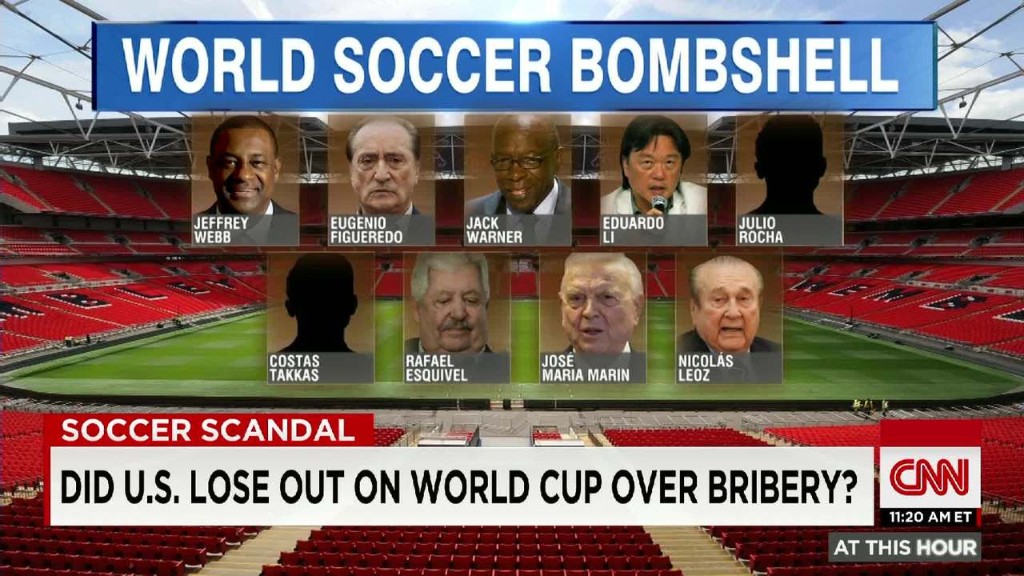
Few soccer fans have ever heard of the Traffic Group, the Brazilian sports marketing firm, or its founder Jose Hawilla.
But to understand the criminal charges engulfing FIFA and the world's most popular sport, it's best to look at the federal charges to which Hawilla and his firm's U.S. subsidiaries have pleaded guilty.
Federal officials say he was one of the main people paying bribes to FIFA officials, allowing them to pocket money that should have gone to developing the sport itself.
Hawilla essentially inserted himself as a middle man between the various federations that controlled the international soccer competitions and those companies that wanted to be a part of the sport, either as sponsors or by broadcasting the matches. Those advertisers and broadcasters would have to deal with Hawilla and the Traffic Group because of the deal he had with the various soccer federations. To get those deals, Hawilla had to bribe soccer officials.
The indictment does not allege that the sponsors or broadcasters themselves were paying bribes to Hawilla or to FIFA officials. But the contracts they gave him were being used to fund the bribes that ended up in the pockets of FIFA officials, according to the charges.
And those bribes grew to staggering amounts as the sport of soccer became more popular in the United States.
Related: Probe targets 'World Cup of fraud'
In December Hawilla and two of the Traffic Group's Florida-based subsidiaries secretly pled guilty in federal court to racketeering, bribery and money laundering charges. As part of the plea Hawilla agreed to forfeit $151 million he earned in the criminal undertaking. He's already paid $25 million of that fine.
That guilty plea was made public Wednesday as new charges were handed down against some of FIFA's top executives. Law enforcement officials in Switzerland, FIFA's home, swooped in to make arrests and those officials may now be sent to the United States to stand trial.
"The reason that these people were able to make so much money corruptly goes to the love that people have for the sport," said Kelly Currie, the acting U.S. Attorney in Brooklyn who brought Wednesday's new round of charges. He said the officials took that love of the game and skimmed money off the top.
Related: How FIFA makes its billions
The indictment against Hawilla doesn't name who he bribed. Instead, it uses terms like "co-conspirator 1," who was described as a "high-ranking official of FIFA ." According to the indictment, that FIFA official told Hawilla back in 1991 that "Hawilla would make a lot of money from the rights he was acquiring." And the FIFA official told Hawilla that he thought it was only "fair" that he should get some of that money himself.
Eventually other FIFA officials also started demanding bribes to sign contracts with the Traffic Group, according to the indictment. By 2013, Hawilla and other sports marketing firms that were also part of the conspiracy had agreed to pay $100 million in bribes spread among 11 different FIFA officials. The top three officials demanded $15 million each, the next seven agreed to $9.5 million a piece, leaving $2.5 million for the final official.

